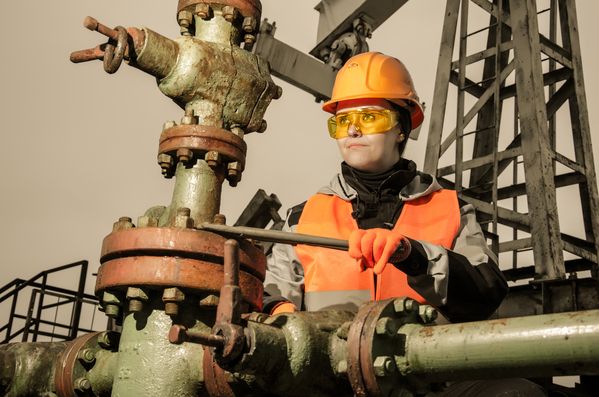
Image source: Getty Images.
After nearly unabated expansion over the past several few years, energy pipeline giant Kinder Morgan (KMI +1.83%) has reversed course in recent months. Instead, it is shrinking its pipeline empire. In the past month alone, the company sold stakes in three pipelines while canceling the construction of several other pipeline projects earlier in the year.
However, while it might seem like the company is starting to lose interest in the pipeline business, that is not the case. It is purging pipelines and projects that don't have the upside or returns of its other assets. In a way, it is shrinking down so that it can grow returns instead of just its size.
Parking the Parkway Pipeline where it belongs
Kinder Morgan's latest pipeline transaction is the sale of its 50% stake in the Parkway Pipeline to refining giant Valero (VLO +2.51%) for an undisclosed sum of cash. Valero already owned the other 50% stake in Parkway, which currently transports 110,000 barrels per day of refined products from the company's St. Charles refinery to Kinder Morgan's Plantation pipeline system.
This transaction was more of a strategic move by Valero than an exit by Kinder Morgan. Valero wanted to increase its access to the eastern seaboard by connecting the pipeline to the Colonial Pipeline system. In addition to that, Valero intends to expand the capacity to more than 200,000 barrels per day so that it can ship a greater percentage of St. Charles' output via this pipeline.
For Kinder Morgan, selling the pipeline provides it with additional cash for debt reduction. It also frees it from being required to invest in the project's future expansion. It was an investment that apparently didn't have a high enough rate of return for the company to justify its involvement in the project.
The shift toward returns-driven growth
By selling its stake in Parkway to Valero, Kinder Morgan is continuing on its path of shrinking so that it can improve its investment returns. Since its inception in 1998, Kinder Morgan has invested $54 billion in acquisitions and growth projects, roughly split evenly between the two. In doing so, it built the largest energy infrastructure company in North America. That said, it has not necessarily made it the strongest. An evidence of this was almost losing its investment grade credit rating late last year after its debt-to-EBITDA ratio crept up to past the 5.5 times comfort zone.
That lofty leverage was partially due to the company's pursuit of growth at almost any cost. While it always invested in projects that had solid returns, it has become much more focused on channeling its investment dollars into the projects with the best returns over the past year. This should reverse the concerning trend of sinking investment returns over the past few years.

Data source: Kinder Morgan investor presentation.
An example of this shift was its decision earlier this year to cancel the $3.3 billion Northeast Energy Direct (NED) pipeline. It did so because not enough of the project's capacity was contracted to customers to justify the anticipated return. CEO Steve Kean elaborated on the decision by saying:
To be specific, the return on the NED project at the level of commitments that we have would be less than 6% unlevered after tax. That's clearly not viable and we are far better off having that cash available for other uses, whether that's continued and even accelerated delevering, other investment opportunities or returning value to shareholders.
In days gone by, Kinder Morgan might have moved forward with the project in hopes of eventually signing up the rest of its capacity. However, the company's new philosophy has higher standards. Because of that, it is canceling or selling projects that don't meet its higher return hurdles. While this will likely result in a lower overall growth rate going forward, it will also lead to stronger returns on investment and equity as well as a better balance sheet.
Investor takeaway
After taking a hard look at its portfolio, Kinder Morgan is purging weaker pipelines and projects and focusing on its best projects, which are those capable of moving the needle further for shareholders. It's a shift that could literally pay big dividends down the road.







